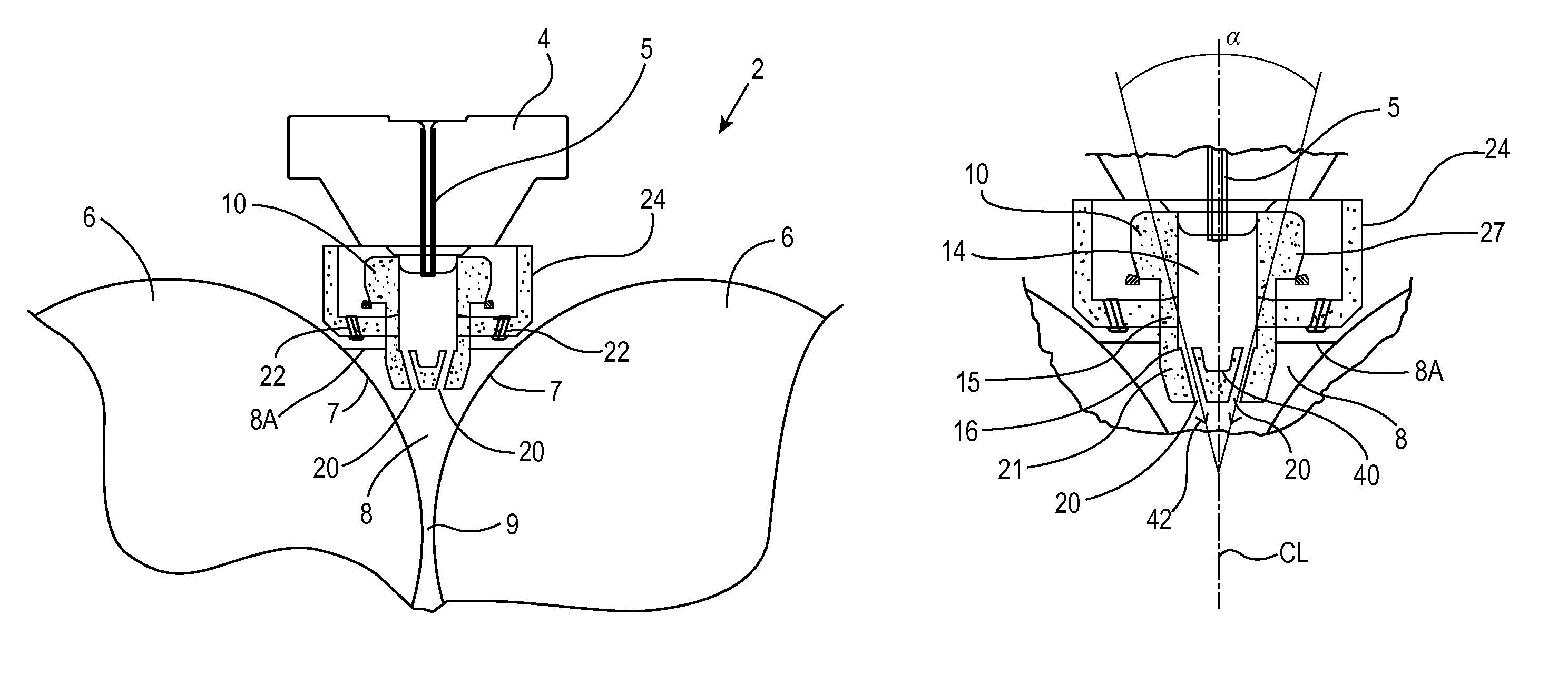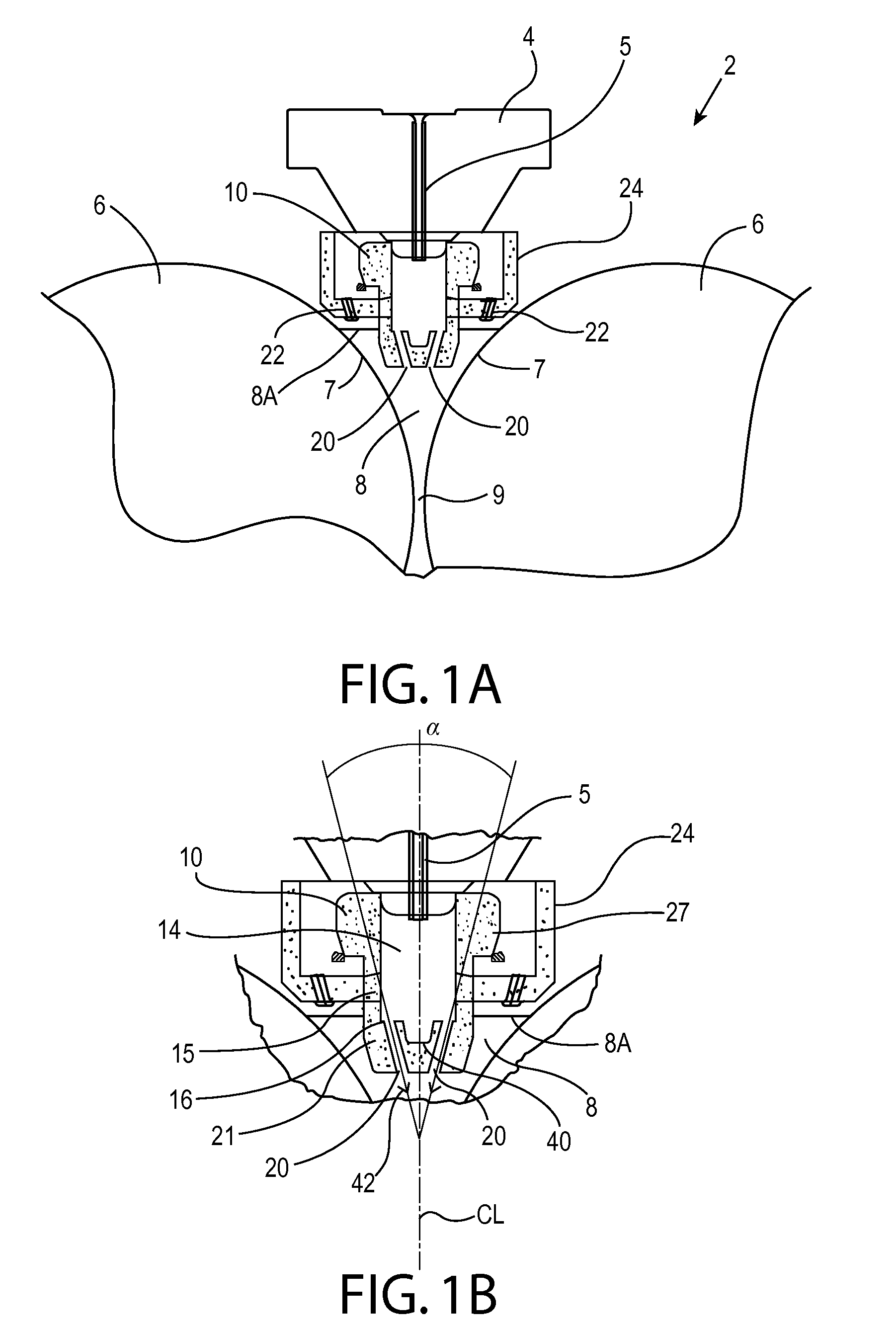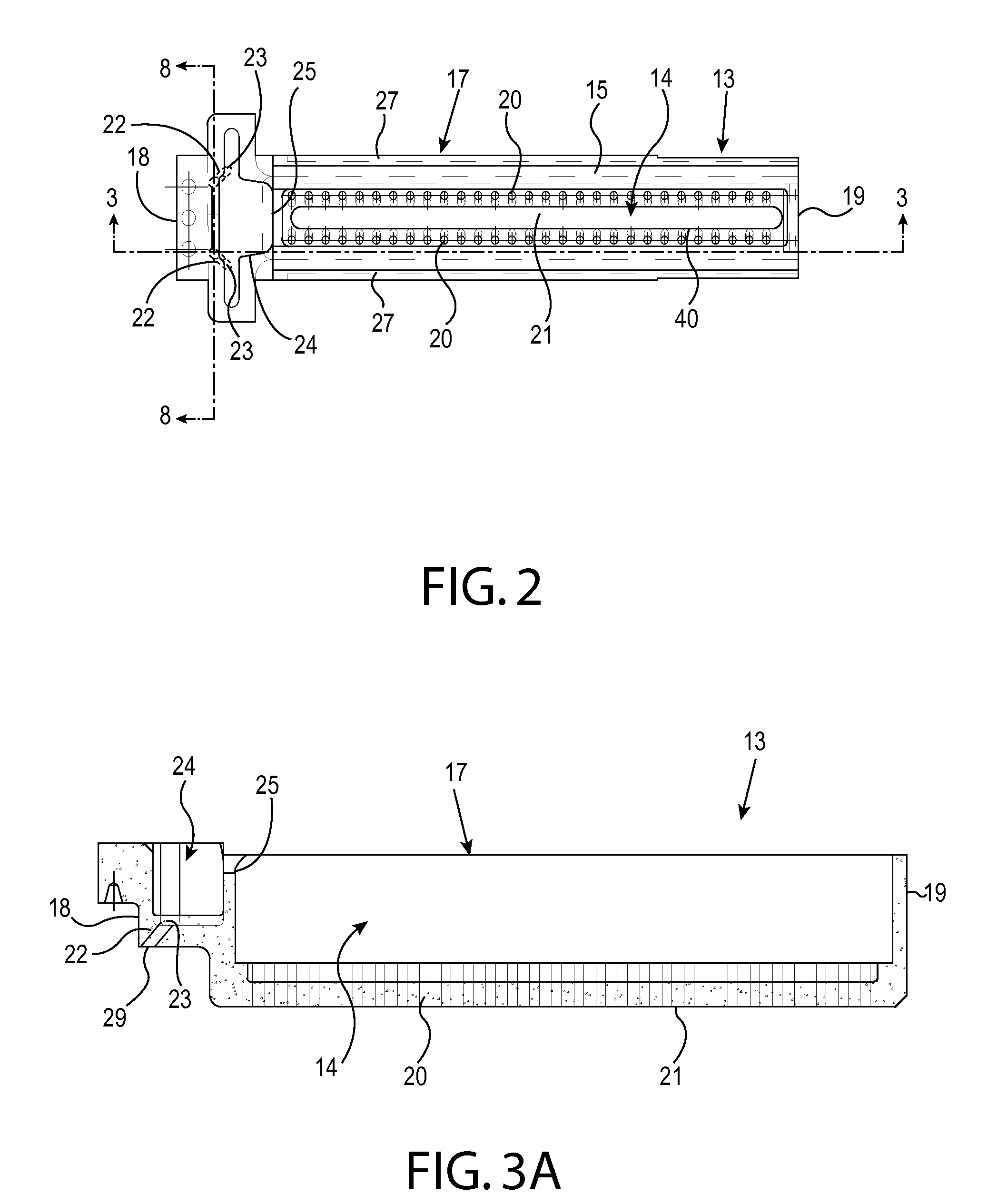Casting delivery nozzle
a delivery nozzle and thin strip technology, applied in the field of thin strip casting, can solve the problems of high heat loss from the casting pool, meniscus marks on the surface of the strip, and inconvenient casting, so as to reduce such surface defects, improve quality, and affect the quality and yield of thin strips
- Summary
- Abstract
- Description
- Claims
- Application Information
AI Technical Summary
Benefits of technology
Problems solved by technology
Method used
Image
Examples
Embodiment Construction
[0059]Disclosed are methods and apparatuses of continuously casting metal strip. Such methods include the steps of assembling a pair of casting rolls laterally disposed to form a nip between them and to maintain a casting pool of molten metal supported by the casting rolls between the side dams, assembling an elongated metal delivery nozzle extending along and above the nip, the delivery nozzle having one or more segments extending longitudinally along the metal delivery nozzle, each segment having a main portion having one or more outlets positioned longitudinally along the elongated metal delivery nozzle and directed downwardly converging toward the nip while forming the casting pool supported on the casting rolls above the nip. The outlets may be positioned as a pair of rows of outlets longitudinally throughout the main portion of the delivery nozzle. The angle of convergence between one row of outlets and the other row of outlets may be such that the direction of flow of molten ...
PUM
| Property | Measurement | Unit |
|---|---|---|
| angle | aaaaa | aaaaa |
| angle | aaaaa | aaaaa |
| angle of convergence | aaaaa | aaaaa |
Abstract
Description
Claims
Application Information
 Login to View More
Login to View More - R&D
- Intellectual Property
- Life Sciences
- Materials
- Tech Scout
- Unparalleled Data Quality
- Higher Quality Content
- 60% Fewer Hallucinations
Browse by: Latest US Patents, China's latest patents, Technical Efficacy Thesaurus, Application Domain, Technology Topic, Popular Technical Reports.
© 2025 PatSnap. All rights reserved.Legal|Privacy policy|Modern Slavery Act Transparency Statement|Sitemap|About US| Contact US: help@patsnap.com



